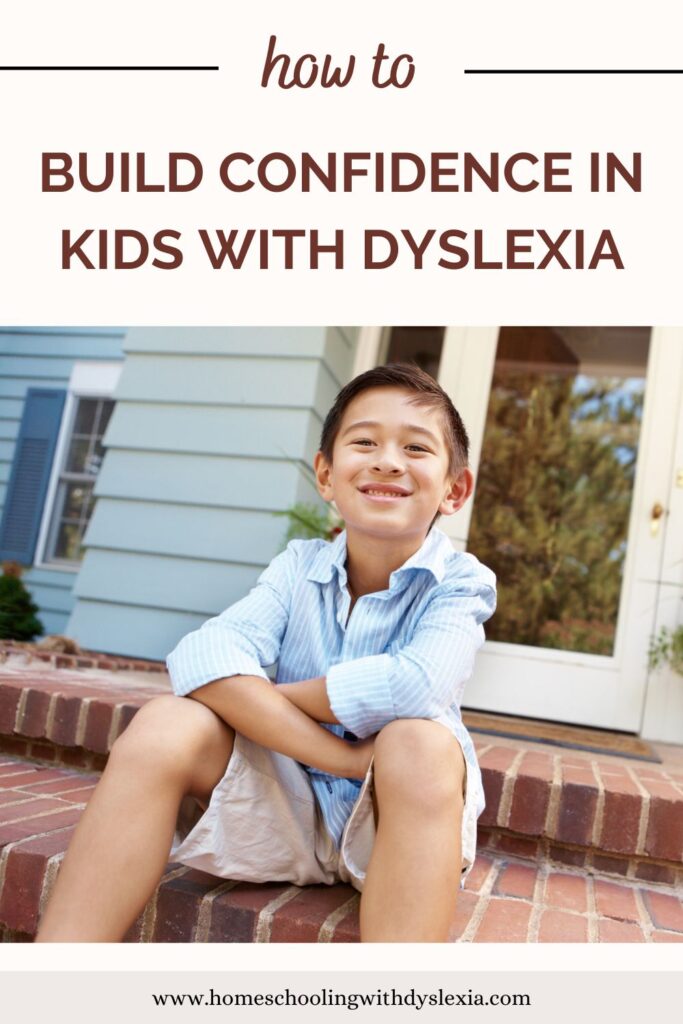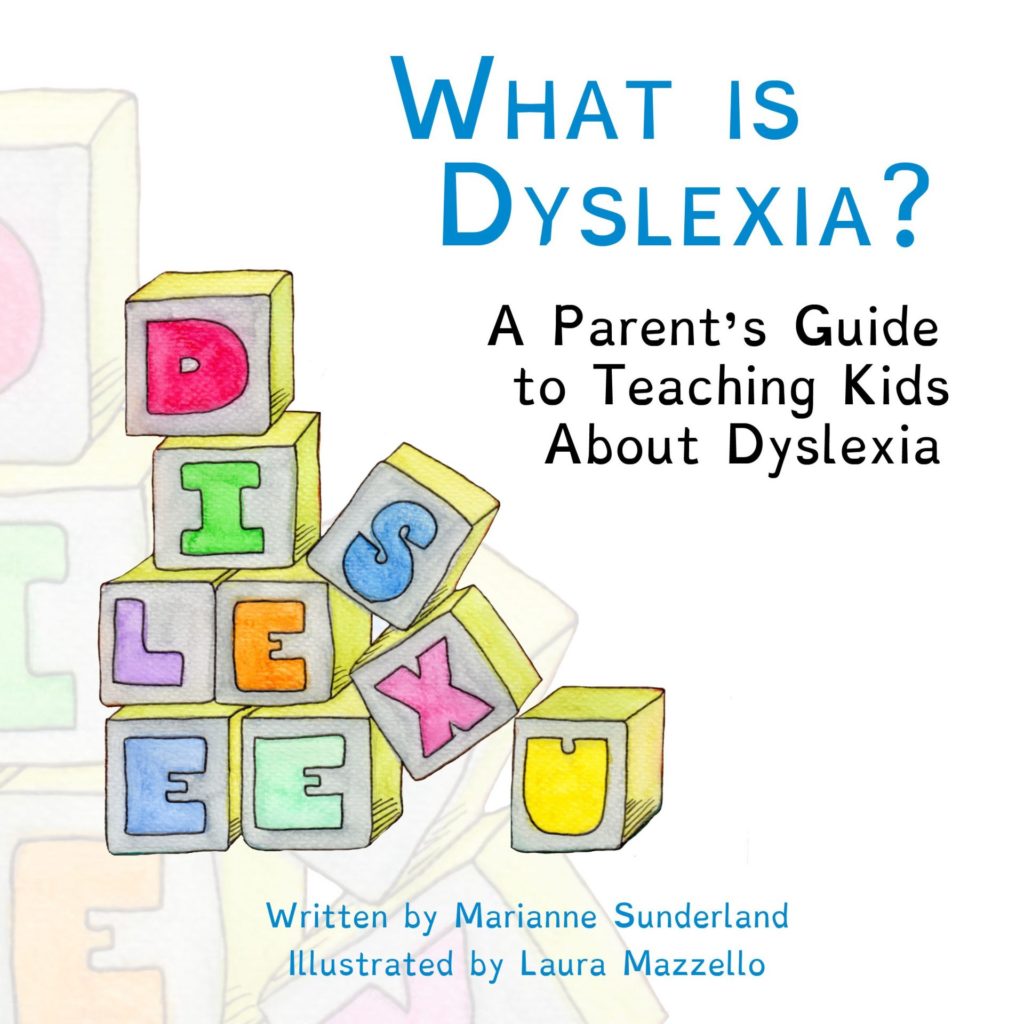There is no one simple way to build confidence in kids with learning differences like dyslexia. This post will share how our family of seven kids with dyslexia (as well as some ADHD, dysgraphia, and dyscalculia) helped our kids to become more confident despite their struggles.
If you would rather listen to this post, click on the player below:
I often hear from parents who are concerned about their dyslexic kids’ lack of confidence. Honestly, I’m often concerned about my own kids’ lack of confidence too!
It’s pretty normal for kids with dyslexia to struggle in this area. There is no way to completely avoid this just as there is no way to completely protect your kids from the many kinds of disappointments in life.
However, there are ways to prepare our kids with dyslexia to handle the frustrations and disappointments that are a normal part of having learning differences (often referred to as learning disabilities).
Read More: Is Dyslexia a Learning Disability or a Learning Difference?
This is one big reason why it’s so important for parents and teachers to be educated about dyslexia.
See my Parent Education Courses here.
As parents and advocates for our kids, we have to understand what dyslexia is so we can help our kids understand the most important lesson you will ever teach your kids – that they are smart but learn differently.
Dyslexia isn’t just having difficulty learning to read. Kids with dyslexia can have slow processing of both auditory and visual information. They can struggle with working memory. They can also struggle with weak executive function skills which affect the ability to focus, organize, and self-regulate which can negatively impact their social skills.
See this list of signs of dyslexia to see how many areas of daily life can be impacted.
No two kids experience dyslexia in the exact same way. My seven kids with dyslexia are all incredibly different!
Some dyslexic kids pick up on how they are different from other kids earlier than others but they almost always pick up on them. It’s how our kids interpret these differences that will make the biggest difference in their confidence.
Understanding Dyslexia Builds Confidence
Kids with dyslexia really can best be described as outside-the-box learners. They learn and function differently in lots of ways. Difficulty with language is a big part of this but not the only part.
After 31 years of parenting and educating my own kids with dyslexia and ADHD, I have learned that these differences don’t need to be a cause of fear or a lack of confidence. My adult kids’ differences have not hindered their success.
Half of my adult kids with dyslexia did not go to college but whether they went to college or not, they all had to learn about their own unique strengths and weaknesses and use them to find success.
There are also ways to help boost our kids’ confidence

How to Build Confidence in Kids with Dyslexia
Build confidence by teaching kids about dyslexia
One of the best ways to help boost our kids’ confidence is to educate them about dyslexia. The truth of the matter is that if kids don’t understand their dyslexia, when they begin to recognize that they are different from other kids – maybe they see that younger kids can read much better than them – they will interpret this as that they are dumb.
The best way to avoid this is to begin to teach them bit by bit about learning differences of all kinds.
As our kids were growing up, we were quick to point out and appreciate our kids’ different strengths. One kid was great with animals while another excelled at sports and still another was an incredible cook.
Helping kids to see that everyone has different strengths can be a gentle lead-in to how everyone also has different weaknesses.
When a child of ours was frustrated that reading was hard, we would say that learning to read was harder for some kids than others but that they would learn to read. I also reminded my kids that they needed to work on their reading to get better.
If there is a person with dyslexia in your family, which is highly likely since dyslexia is genetic, it can be helpful to share how Dad or Uncle Steve has dyslexia and is able to read, write, spell, or any other thing that is important to your child.
This worked well for the most part with my kids, however, if you have a child who is shut down to learning or extremely resistant to reading or learning you may need to focus more on restoring their confidence before pushing reading (or other) instruction.
You can learn more strategies for the shut-down learner here.
You can learn more strategies for teaching kids about dyslexia here.
Build confidence by teaching kids about the strengths of dyslexia.
Thankfully, research has expanded in recent years to include a closer study of the unique strengths of dyslexia.
Where dyslexia used to be thought of in terms of its deficits, now thanks to the many successful adults with dyslexia coming forward and being open about their own learning struggles, we can see that dyslexia is not just about overcoming weaknesses. These weaknesses also result in some pretty impressive strengths.
Read More: Teaching Kids About the Strengths of Dyslexia

My children’s book, What is Dyslexia: A Parent’s Guide to Teaching Kids About Dyslexia includes a whole section on the strengths of dyslexia.
Build confidence by teaching advocacy
As your kids get older, say into their teen years and especially before college, it becomes more and more important to teach them to self-advocate which is just a fancy way of saying to teach them how to explain their different learning needs to people who need to know such as teachers, professors, and employers.
This includes understanding their diagnoses and any accommodations that are especially helpful to them.
Learn more about teaching kids to self-advocate here.
Build confidence by encouraging a growth mindset
This is SO important! Having a growth rather than a fixed mindset will set your kids up for success for the rest of their lives.
By the way, did you know that when researchers studied the attributes of successful, adult dyslexics, none of the attributes had to do with IQ or level of education?
Learn more about the 6 fascinating attributes of successful dyslexics here.
Growing up with dyslexia can be frustrating and discouraging at times. Kids can feel the frustration of repeating lessons or forgetting previous lessons. Kids can also pick up on Mom or Dad’s frustration and disappointment.
This is when the subtle art of teaching kids to have a growth mindset can make a big impact not only in the moment but for the rest of their lives.
If you have never heard of growth and fixed mindsets here is a little background.
Two Kinds of Mindset
Fixed Mindset: This is the belief that intelligence is fixed and that any subject that is difficult or requires much effort simply means that you are dumb.
Growth Mindset: This is the belief that intelligence can be grown and that subjects that are difficult or require extra effort mean that you are increasing your intelligence.
Cultivating a growth mindset in our kids, one where they believe that they can learn, is done by praising our kids for their effort (hard work, perseverance, using a strategy they have been taught, etc) rather than their output which is essentially how well they performed.
One simple way to encourage growth mindset thinking is to put the word yet at the end of any negative response. So for example, if a child says
I can’t read this! I can’t read this yet.
I’m not good at math! I’m not good at math yet.
Teaching kids in this way is not a one-and-done thing. It is a mindset that parents and teachers much embrace and teach daily to our kids.
Learn more about the fascinating research behind growth mindsets here.
Learn in detail how to teach kids to have a growth mindset here.
Mindset Shifts for Parents and Teachers
Get educated about learning differences
Kids who learn differently need to be taught differently. Therefore, the people who teach them need to adjust their beliefs and understandings about learning as well.
Getting educated about dyslexia helps parents and teachers to know what to expect from their students with dyslexia.
For example, it is completely normal for kids with dyslexia to struggle with spelling long into their teen years. It is also normal for kids with dyslexia to learn to read much, much later than their peers who learn in traditional ways.
The years when you are working with your kids on mastering reading and spelling can be frustrating and overwhelming. A lesson that seemed to be mastered one day is forgotten the next. We can feel like we are working and working and making little to no progress.
There are a couple of other mindset shifts that parents and teachers of kids with dyslexia need to cultivate.
Cultivate your own growth mindset
Apply the same growth mindset strategies that you are teaching your kids to your thinking.
My child isn’t reading fluently – YET. My child isn’t spelling accurately – YET. And so on…
Remember that learning is a journey, not a destination
No one ever stops learning and we need to approach our kids’ education with this in mind. We are equipping them to learn throughout their lifetime, not just cramming facts into their heads.
The early years with dyslexia, while our kids are still learning to read, are some of the hardest years for parents and kids.
While some of our kids who were more mildly dyslexic learned to read independently at about 9 years old, some of our kids who were more profoundly dyslexic didn’t learn to read independently until they were in middle school.
Build confidence in your kids with dyslexia by using effective intervention
This delay in learning to read can fill parents with worry. The best thing to do is to be as consistent as possible and use a research-based (Orton-Gillngham) reading program. Kids with dyslexia learn to read at all different ages.
No conversation about helping kids with dyslexia would be complete without the encouragement to teach your kids with methods that are effective and research-based.
Using research-based methods helped me gain confidence as a teacher because I knew that despite my kids’ struggles, they would learn eventually.
Learn more about effective teaching methods:
How to Teach Kids With Dyslexia to Read
Understanding Accommodations and Modifications.
We all want our kids to be successful in the world. Whether they go to college or trade school or start their own business, our job as parents is to guide our kids and to help them develop the attributes of success that will help them as adults.
There is no one, simple solution to kids who struggle with confidence but showing up consistently day after day with understanding, a positive mindset, and using methods that work will help your kids grow through their difficulties to become confident young men and women.





0 Comments